Mar 31, 2012
msnbc.com: "Muslim Brotherhood says it will run candidate for president in Egypt election"
By Ayman Mohyeldin, NBC News correspondent
http://worldnews.msnbc.msn.com/_news/2012/03/31/10959476-muslim-brotherhood-says-it-will-run-candidate-for-president-in-egypt-election
CAIRO -- Egypt's Muslim Brotherhood has announced it will field its own candidate for Egypt's presidential election on May 23.
The announcement of Khairat al Shater's selection by the Brotherhood's executive committee is a significant departure for the group, which initially vowed it would not field a candidate from within the organization. The Muslim Brotherhood's political wing, the Freedom and Justice Party, already controls nearly half of parliament.
Before he can run, Shater must win the endorsement of 30 members of parliament (he will easily do that). But he will also need a pardon from the Supreme Council of the Armed Forces to overturn a previous conviction. During Hosni Mubarak's decades-long rule, Shater was imprisoned for several years more than once. A popular uprising forced Mubarak to resign in February 2011.
Shater is considered the architect of the Muslim Brotherhood's political emergence in recent years and often credited for coming up with many of the movement's policies. Shater, a millionaire businessman, also controls the group's finances.
The Muslim Brotherhood decision will certainly ring alarm bells in Washington and has already angered many in Egypt who have been warning that the Brotherhood is slowly attempting to take over all aspects of political life, including parliament, local councils, the constitutional committee and now the presidency.
Mar 30, 2012
First review of my CD Within, and 3 other great Jewish musical projects from the Bay Area!

Mar 29, 2012
NIF News
|
Mar 27, 2012
Being a Jew
 |
| French police stand guard outside the Ozar Hatorah Jewish school in Toulouse on Tuesday, March 20, 2012. |
forward.com: "Student Beaten Outside Jewish School in Paris"
"Student Beaten Outside Jewish School in Paris"
By JTA
PARIS — A Jewish boy reportedly was beaten outside the Ozar Hatorah school in Paris by youths shouting anti-Semitic epithets.
The incident occurred Monday outside the school, which the 12-year-old victim attends. He was not seriously injured.
The attack came a week after a gunman opened fire on the Ozar Hatorah school in Toulouse, killing a rabbi and his two young sons, and the daughter of the school's principal.
The boy in Paris reportedly was beaten about 100 yards away from the school, out of sight of police who have been guarding the school since last week's attack in Toulouse.
Read more: http://www.forward.com/articles/153829/student-beaten-outside-jewish-school-in-paris/#ixzz1qMNtiapX
Tell the Supreme Court: I Support Health Care Reform
Please forward the email below to 3 of your friends right now and encourage them to add their name to our petition at http://dccc.org/Support-HCR.
Thanks for your support!
At this critical moment, let's show the world that we are united and strong behind President Obama's law and that every American deserves access to quality, affordable health care. Send a message to the Court: Help us reach 100,000 strong standing up for Health Care Reform before tomorrow's final day of arguments. I'm proud to support health care for all Americans. I'm proud that thanks to all of our efforts, millions of Americans can no longer be dropped from their coverage when they get sick. And I'm proud that when the law takes full effect, being a woman will no longer be classified as a "pre-existing condition." Let's stand proud for health care reform: http://dccc.org/Support-Health-Reform Thanks for standing with us, Kelly Kelly Ward DCCC Political Director
|
Mar 26, 2012
Grains of my Soul
Mar 25, 2012
Trayvon Martin z"l wasn't just one of the world's children.
Mar 22, 2012
Rabbi Reuven Hammer: "Tradition Today: Remembering Chief Rabbi Hertz"
By Rabbi Reuven Hammer
The position of chief rabbi in England is certainly one of the most prestigious rabbinical positions in the Jewish world. Both the current chief rabbi and the former were made Lords, not an insignificant achievement. It should be noted, however, that the post – known in England simply the "the chief" – is not really chief rabbi of Great Britain, but chief rabbi of the United Hebrew Congregations of the Commonwealth, the largest organization of Orthodox synagogues. The ultra-Orthodox have their own organization, as do the Liberal, Reform and Masorti movements, none of which recognize the authority of the chief rabbi.
As the United Synagogue begins its search for a new chief rabbi, it is interesting to look back at one of the most celebrated chief rabbis, Rabbi Joseph Herman Hertz. Hertz was a graduate of the first class of the Jewish Theological Seminary of America in New York in 1894, before the Conservative Movement as such had been created, but when the Seminary represented the approach of the Historical Positive movement in Judaism that had been founded by Zecharia Frankel. He served as a rabbi in a synagogue in Syracuse, New York, that was identified with that approach as well.
He was chosen as chief rabbi in 1913 and served in that post until his death in 1946. During that time, although he was opposed to liberal Judaism in England, he never denied his Seminary background and surely the open, inclusive attitude that is shown in his writings reflected that.
The Humash that bears his name was the most widely used Torah commentary in English-speaking synagogues for generations and was, for its day, an excellent combination of traditional Biblical commentary and modern understanding. In recent times it has fallen out of favor due to a number of factors. To its misfortune, it is both too liberal and not modern enough.
The Reform and the Conservative/Masorti movements have each produced a Torah commentary reflecting modern Biblical studies and the specific ideologies of each movement. At the same time much of Orthodoxy has moved to the Right and finds Hertz too liberal, preferring the more fundamentalist ArtScroll version.
LESS WELL known is Hertz's commentary on the prayer book which was issued following his death in 1946, although major portions had been published during his lifetime. Unlike the recent Daily Prayer Book of the current chief rabbi, Jonathan Sacks, Hertz's was evidently not intended for synagogue use, but for study purposes and thus never replaced the standard "authorized" Singer's prayer book.
A glance at Hertz's work, however, reveals how startlingly open was his approach. It certainly reflects quite a different time in the history of British Jewry, one in which the chief rabbi felt quite free to utilize non-Orthodox authorities in his commentary and to voice unusual views.
Hertz quotes liberally from non-Jews including William James, Joseph Addison, Matthew Arnold, George Foote Moore and many Christian biblical scholars. Even more startling is the fact that he quotes from non-Orthodox rabbis, including Solomon Schechter and Leo Baeck. He even includes twice a long excerpt from Cyrus Adler, a non-rabbi who was president of the (Conservative) Jewish Theological Seminary of America, calling him "a noble Jew," and also quotes Moses Mendelssohn and Kaufman Kohler, the president of the Reform Hebrew Union College!
No less daring for his day was his statement that an intensive Jewish education must be extended to "every Jewish boy or girl" (page 120) and his statement that some think the Messiah may be Israel itself (page 254). In his comments to the blessings in the early morning service thanking God who "has not made me a heathen," "not made me a slave," and "not made me a woman," Hertz quotes a Prof. Abraham Berliner, who urged that these three be eliminated and replaced with the words "who has made me an Israelite."
Hertz concludes, "He has rightly maintained that 'to be filled with gratitude to God for having allotted to me the distinction of participating in Israel's mission and destiny, is surely far more expressive than the present negative formula'" (page 21). I agree, but I also wonder if Hertz were alive today, would he be considered as a suitable candidate for the position?
The writer, former president of the International Rabbinical Assembly, is a twotime winner of the National Book Award. His latest book is The Torah Revolution (Jewish Lights).
Mar 21, 2012
Half my heart will be in Boston on April 2
VaYikra 5772/2012: "The Sacrificial Call"
(c) Rabbi Menachem Creditor
Parashat VaYikra contains echoes of the past few weeks. We just finished the book of Shemot/Exodus, and this week we begin the book of VaYikra/Leviticus. The end of Shemot is all about the building of the mishkan, and so, true to Jewish tradition, the journey forward remembers the past. The final verses of Shemot read:
"...When Moses had finished the work, the cloud covered the Tent of Meeting, and the Presence of God filled the Tabernacle. Moses could not enter the Tent of Meeting, because the cloud had settled upon it and the Presence of the God filled the Tabernacle... over the Tabernacle the cloud of God rested by day, and fire would appear in it by night, in the view of all the house of Israel throughout their journeys. (excerpted from Ex. 40:33-38)"
So strange that Moses, after dedicating years to connecting the Israelites to God, can't enter into the very structure he has helped create for that same purpose. And why? Because there isn't room. God's presence is so filling - so "Present" - that there just isn't room for anyone. Even Moses. What must it have felt like to be Moses - closed out of the very place he could have received the ultimate validation, the deepest comfort?
Consider the Jewish mystical notion of "Tzimtzum," contraction. Jewish mysticism teaches that, in order to create the world, God needed to not be everywhere and everything. After all, how could anything independent exist if God were everywhere and everything? And so God pulled back some of God's Self in order to provide physical space and spiritual independence. Tzimtzum helps address questions regarding free will, suffering, and existence.
The same model holds true for human relationships. I think of my precious children. If I wasn't ready to do Tzimtzum, to contract myself enough to give them the room to make their own decisions - decisions that I might not make nor approve of - I shouldn't have had a child. If we aren't ready to do Tzimtzum and thereby provide "space" for our partners to act and think independently from us we aren't prepared to be a couple. All healthy relationships include Tzimtzum and are infused with the obligation to grant others the right to inhabit their own place.
What do we see in the end of Exodus? There isn't room for Moses because God is SO present, because God does not do Tzimtzum, does not provide space for Moses. This week's Parashat can be read as a response to last week's: Look at the very first verse of VaYikra: "God VaYikra/Called to Moses and Laymor/spoke to him from the Tent of Meeting... (from Lev. 1:1)" There is a peculiarity to the way scribes write the word "VaYikra/Called"- the letter Aleph is smaller than the other letters. We'll return to the "small aleph" in a little bit. For now, look at a different aspect of this verse. The word "VaYikra" seems to mean the same thing as the word "Laymor." Look what Rashi comments on this verse:
"For every thing and for every utterance and for every command a "calling" came first. It is a language of embrace, the language that the helping angels use, as it says, "And one would call ("kara," the same word as "called" in our verse) to the other (Is. 6:3)." But for the prophets of the nations who worshipped the stars and told horoscopes it was revealed to them in the language of impermanence and impurity, as it says "And God manifested (VaYikar) God's Self to Balaam (Num. 23:4)."
Rashi explains that the term "VaYikra/Called" actually is God's embracing invitation to Moses, perhaps in contrast to the excluding Presence of God at the end of Exodus. In this light, VaYikra's very opening is Tzimtzum, of a Divine contraction which grants room to another. But look closely at what Rashi is saying. Angelic calling (kara) is a divine embrace, but inauthentic prophecy (VaYikar) is impure. The Hebrew, again, is the center of Rashi's comment. Notice how similar the word "VaYikar/Manifested" is to "VaYikra/Called."
What is the difference between VaYikra and VaYikar? The letter Aleph- the small aleph.
The difference between being included (Moses) and being excluded (Balaam) is a little Aleph. Whereas in Shemot there wasn't room for Moses, the "small aleph" of VaYikra re-invites Moses in to sacred intimacy. In fact, one of the explanations of the small Aleph is that, originally, the Torah was written without spaces between the words. The aleph became lost between the words. Our small aleph is the result of scribal tzimtzum- the scribes found room to allow a letter to exist.
And so we see that Tzimtzum is the difference between "in" and "out."
Tzimtzum is the heart of a mindful, relational practice. When I recognize the power of someone close to self-determine, my life changes. I become freer. A quest for God requires honest and open self-reflection and the recognition that God's image is just as surely in the face of another as it is in mine is key. Did I give up some control over my life by becoming a father, a life-partner? Absolutely. Am I willing to continue working on my own Tzimtzum? With all my heart.
I pray that the same intentionality with which we invite a place for God's Presence we also open our arms and synagogues and friendship circles to all who wish to join in sacred relationship. I pray that God's act of Sacred Tzimstum be reflected in the ways we decide who is "in" and who is "out."
Are we prepared to sacrifice of some of our control?
Mar 18, 2012
New Audio-Shiur! "The Legacy of Moshe Rabbeinu"
Sinai Memorial Chapel Zayin Adar Lunch 5772
(c) Rabbi Menachem Creditor
What are some lessons we can learn from Moshe Rabbeinu? At the Zayin Adar lunch for Sinai Memorial Chapel, Rabbi Creditor gleans lessons from the life of the greatest and most humble prophet. -- http://soundcloud.com/rabbicreditor/the-legacy-of-moshe-rabbeinu
Mar 13, 2012
Rabbi Creditor: Words Like "Chocolate"
| ||||||||||||||||||||||||||||||
Mar 11, 2012
Letter to the SF Chronicle in response to Jon Carroll's "Dead Souls on Our Conscience" (March 9)
Total Pageviews
-
An Open Letter to the Leadership of the Toronto International Film Festival (TIFF) Rabbi Menachem Creditor Your decision to cancel the scre...
-
A new Bigger on the Inside post: #Hook - "There You Are" "There you are, Peter!" Over time, our eyes can become dim. ...
-
Abortion and Reproductive Justice: Selected Jewish Resources Encoded Law and Embodied Spirit: Judaism and Abortion Rabbi Menachem Creditor S...

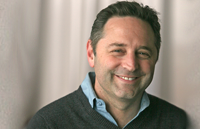
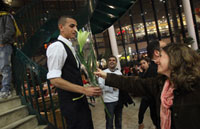 Banishing Racism with Flowers at Jerusalem Mall
Banishing Racism with Flowers at Jerusalem Mall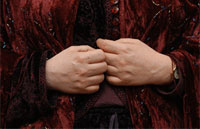 New Law Enacted to Protect Agunot
New Law Enacted to Protect Agunot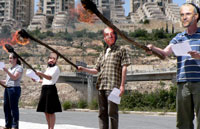 We did it! Activists celebrate postponement on planning reform
We did it! Activists celebrate postponement on planning reform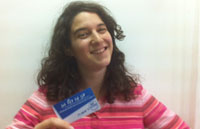 The Sweet Taste of Justice
The Sweet Taste of Justice









